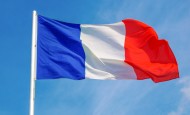French and Swedish Government Funding Used to Target Israeli Banks
On March 29, 2017, a group of pro-BDS NGOs – Al-Haq, International Federation of Human Rights (FIDH), French League of Human Rights (LDH), Association France Palestine Solidarité (AFPS), CCFD-Terre Solidaire, la CGT, Union Syndicale Solidaires, and Fair Finance France – released a report calling on the French government to force French banks and insurance companies to “disengage without delay from any financial link with Israeli banks.” The NGO action also lobbies for “a legislative proposal prohibiting enterprises from all sectors to invest in the settlements.” This is the most recent NGO-led attack against Israel, and, as in the past, is funded through European government frameworks.
Alleging “French Banks’ Dangerous Liaisons with the Israeli Settlement Enterprise,” the NGOs point to French banks’ direct and indirect “minority shareholdings in banks or businesses operating in the Israeli settlements.” One “notable case” mentioned in FIDH’s press release is the Israel Electric Corporation (IEC). The report states that a number of French Banks provided a €288 million loan to IEC, a company that “supplies directly to the settlements” and claims that this loan somehow causes violations of human rights. (This argument is contradicted by FIDH’s claim that denying electricity to Gaza would constitute a violation of human rights; the same ought to be true if the IEC denied electricity to settlements.)
BDS campaigners falsely claim that corporations operating over the 1949 Armistice Line violate international law. However, this claim has failed in every court case brought in Europe and North America, and in particular in France. All courts that have examined this issue have ruled that only states, and not corporations, are subject to international humanitarian law (IHL), and there is no international rule whatsoever imposing liability on corporations for allegedly aiding and abetting claimed violations of a state. For instance, a French court noted that building the Jerusalem Light Rail was not illegal because occupation law allows for the governance of occupied territory and includes the building of transportation infrastructure (see below).
The publication is funded by the Swedish Government through the Swedish International Development Cooperation Agency (SIDA) with analysis conducted by Profundo Economic Research Consultancy in the Netherlands.
The NGOs that released the report are all known politicized organizations that advocate for BDS against Israel, including the campaign against Orange in 2015. Al-Haq, FIDH, LDH, AFPS, and CCFD-Terre Solidaire in particular each received French government funding, in direct contravention to a French Supreme Court decision stating that calls to boycotts are illegal.
- Al-Haq received a core funding grant of $710,000 (2014-2016) from the Human Rights and International Humanitarian Law Secretariat (“Secretariat” – joint funding from Denmark, the Netherlands, Sweden, and Switzerland).
- In 2016, the Secretariat approved Al-Haq for an additional $160,000 in core funding following an additional grant from Sweden.
- The organization also received a grant of NOK 3,200,000 (2015-2016) from Norway and €240,000 (2013-2015) from Ireland.
- In 2015, The French Ministry of Foreign Affairs and International Development provided Al-Haq with €27,842 (line 1199) to support its activities in the “private sector and human rights.”
- The General Director of Al-Haq, Shawan Jabarin, has alleged ties to the Popular Front for the Liberation of Palestine (PFLP) terrorist organization and as such has been denied exit visas by Israel and Jordan. The PFLP is a terrorist organization designated as such by the US, EU, Canada, and Israel. The PFLP is involved in suicide bombings, hijackings, shootings, and assassinations, among other terrorist activities targeting civilians.
International Federation of Human Rights (FIDH)
- In 2017, FIDH is budgeted to receive a grant of €550,000 from the French Ministry of Foreign and European Affairs.
- FIDH received $2.3 million (2014-2016) from Sweden.
- According to FIDH’s 2015 annual report, FIDH receives funding from: SIDA, Ministry of Foreign Affairs of France, Mairie de Paris, Organisation Internationale de la Francophonie, Agence Française de développement, The European Commission, Finland, Norway, Netherlands, Denmark, Ireland, Germany (BMZ and GIZ), and UNVFVT.
- Shawan Jabarin is also a Secretary General of FIDH.
French League of Human Rights (LDH)
- In 2015 (latest available), Ligue des droits de l’Homme’s (LDH) received €755,000 (34% of its total budget) in French government funding.
Association France Palestine Solidarité (AFPS)
- Association France Palestine Solidarité (AFPS) does not publish financial information, reflecting a lack of transparency and accountability.
- AFPS receives government funding from the French government through various governmental bodies.
- In 2007, AFPS and the Palestinian Liberation Organization (PLO) filed a petition with the Tribunal of Nanterre against Veolia and Alstom for alleged violation of “public order.” In the petition, the two French companies were accused of violating international law for their involvement in the construction of the Light Rail train. The Tribunal of Nanterre dismissed the case in 2011, and the Versailles Court of Appeals upheld the decision in 2013.
- The court ruled that the AFPS did not have standing to bring suit because it was not “defending a collective interest specific to its membership as distinct from the public interest of Palestinians in general.”
- The court also noted that building the Jerusalem Light Rail was not illegal because occupation law allows for the governance of occupied territory and includes the building of transportation infrastructure. Finally, the court emphasized that the determination of the legality of a contract cannot be contingent on political considerations advanced by a third party.
- In 2015 (latest available), received €2.1 million (5.5%) in French government funding.

